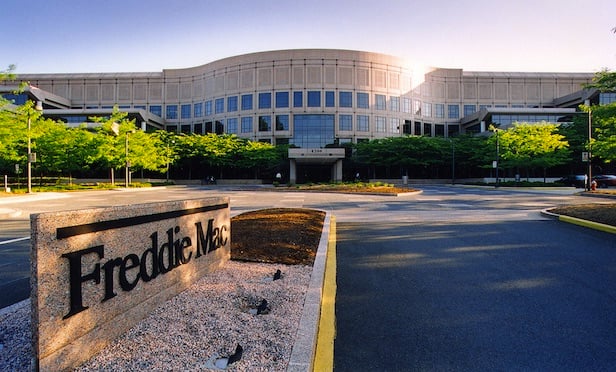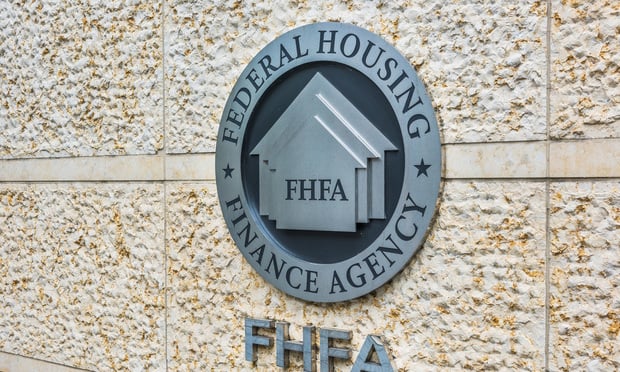WASHINGTON, DC—This year's round of New Market Tax Credits awarded a total of $3.5 billion to 85 Community Development Entities throughout the country. New York came out as a big winner, with seven CDEs in the state receiving a total of $320 million in credits.
As GlobeSt.com reported yesterday, Treasury assistant secretary for financial institutions Cyrus Amir-Mokri, US Senator Charles E. Schumer (D-NY) and CDFI Fund director Donna J. Gambrell made the announcement. Also on hand was Charlie Werhane, president and CEO of Enterprise Community Investment Inc., a Columbia, MD-based provider of capital and expertise for community development and affordable housing, which received $50 million in NMTCs from the Community Development Financial Institutions Fund.
The NMTC program provides incentives to investors to help revitalize low-income and distressed communities. Over 70% of NMTC investments have been made in communities that meet the highest distress criteria.
Since the first round of awards in 2003, noted Schumer, the program “has been transforming low-income and distressed communities in ways that exceeded expectations.” That's why, he added, Congress extended the NMTC program at the end of the year. Further, President Obama has proposed a permanent extension of the credit, with an annual budget of $5 billion.
The investment generated by the NMTCs “deliver critical support to economic development projects in communities that need them the most,” he continued. “Simply put, the awards being put out today are going to help places like upstate further economic development.”
In New York State, the CDEs receiving awards in the latest round function on a national level, focusing on operating businesses and real estate. Chase New Markets Corp. took the largest total, $70 million, followed by HEDC New Markets Inc., with $65 million. NMTCs worth $50 million went to Citibank NMTC Corp., GS New Markets Fund received $45 million, $40 million went to Nonprofit Finance Fund, UA LLC got $35 million and Civic Builders Inc. went home with $15 million in NMTCs.
The $320 million the New York-based CDEs will receive can be used to spur investment in urban areas across the state and city. As an example, Shumer cited the Trico Plant #1 in Buffalo, NY, a former manufacturing facility for Trico Products Corp., the first producer of windshield wiper blades for cars. Trico moved into the plant, built in 1890 as a cold storage facility for a brewery that shut down during the Prohibition, in 1920 and expanded it through 1946. Stretching across two city blocks, the factory is the third-largest building in Buffalo and was one of the city's biggest employers during the Depression and afterward.
But since Trico left the city in 1999, choosing to move its manufacturing operations to Texas and Mexico, the 600,000-sf site has sat vacant and neglected even though it's on the National Register of Historic Places. It went through a public auction and was transferred to the Buffalo Brownfield Restoration Corp., a subsidiary of the Buffalo Urban Development Corp.
With the use of NMTCs, Shumer noted, the facility has turned into a job-creating incubator called the Thomas R. Beecher Jr. Innovation Center, located within the thriving Buffalo Niagara Medical Campus. It is now a LEED-certified research and development center that offers office, wet lab and research space to small- to medium-sized life sciences and biotech companies, as well as support services companies such as IP attorneys, talent acquisition, sales and marketing firms.
Shumer also pointed to Urban Health Plan's expansion in the South Bronx, which “serves a community that's one of the poorest in the US with low-cost effective healthcare, while creating jobs.” The expansion was financed by Enterprise, Goldman Sachs Urban Investment Group, Nonprofit Finance Fund and Stonehenge Community Development, all of which utilized more than $48 million in NMTCs, along with other financing and grants.
Like many firms that use NMTCs, Werhane said, “We work at grassroots level to discover and deliver individual community needs. We believe our whole society is better off when people live in communities with good schools, housing, support facilities and job growth.” And in its effort to encourage better health and living in urban areas, the Enterprise is looking to invest in urban grocers. This, too, is a focus of the NMTC program.
In addition to the South Bronx investment, Werhane cited the company's Miller's Court project as an example of the successful use of NMHCs. It's a redevelopment of the former H.F. Miller and Son Tin Box and Can Manufacturing Plant into a LEED Gold-certified mixed-use property. “Every year Baltimore City hires about 1,000 new teachers, but finding suitable housing is a huge challenge for them,” Werhane explained. “Miller's Court is designed for these new teachers.”
With financing including $19 million in NMTC, of which Enterprise kicked in $9.4 million worth, the developers built 40 one- to three-bedroom apartments for teachers; over 30,000 square feet of office space for nonprofits focusing on education, health and human services; and supporting retail space.
Located within the city's Charles Village neighborhood, the project has been a catalyst for further economic development in this section of Baltimore, said Werhane. He indicated that Enterprise has been working with locally based Seawall Development Co. to replicate Miller's Court across the US in collaboration with the Teach for America program. With successful projects in Philadelphia and New Orleans, the group is looking for more opportunities.
Want to continue reading?
Become a Free ALM Digital Reader.
Once you are an ALM Digital Member, you’ll receive:
- Breaking commercial real estate news and analysis, on-site and via our newsletters and custom alerts
- Educational webcasts, white papers, and ebooks from industry thought leaders
- Critical coverage of the property casualty insurance and financial advisory markets on our other ALM sites, PropertyCasualty360 and ThinkAdvisor
Already have an account? Sign In Now
*May exclude premium content© 2025 ALM Global, LLC, All Rights Reserved. Request academic re-use from www.copyright.com. All other uses, submit a request to [email protected]. For more information visit Asset & Logo Licensing.








